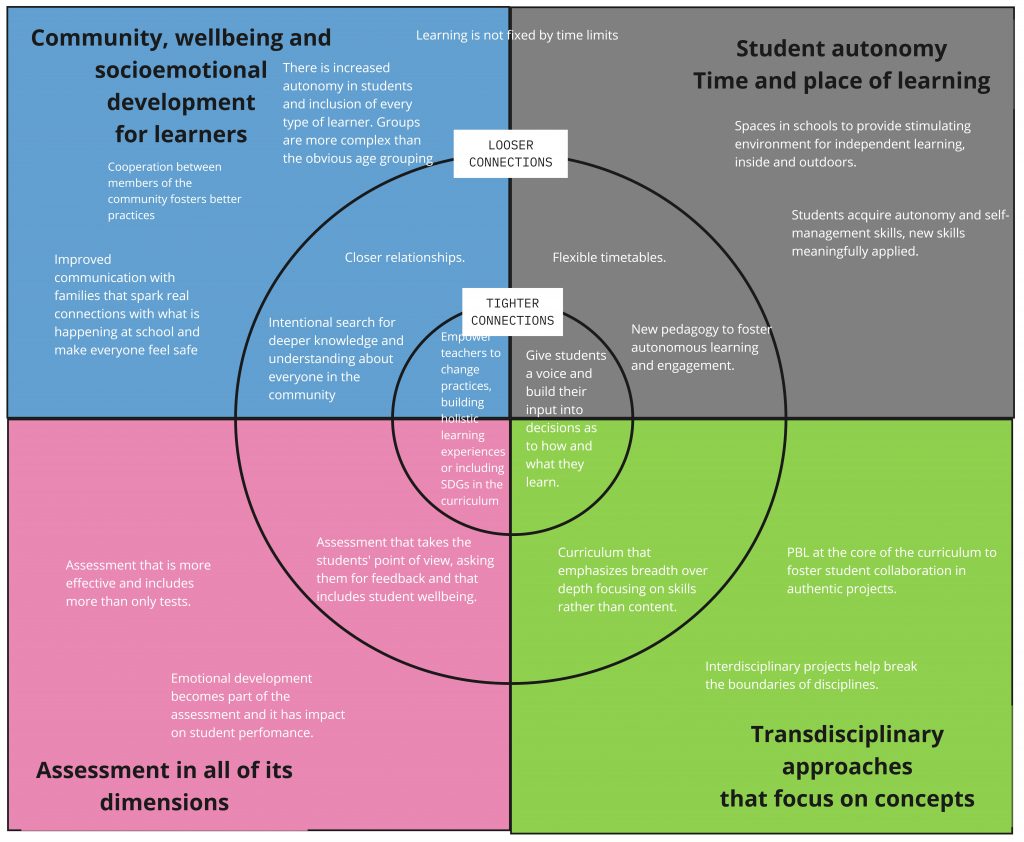Skip to content

- Learning is not fixed by time limits
- There is increased autonomy in students and inclusion of every type of learner. Groups are more complex than the obvious age grouping
- Spaces in schools to provide stimulating environment for independent learning, inside and outdoors.
- Cooperation between members of the community fosters better practices
- Students acquire autonomy and self-management skills, new skills meaningfully applied.
- Closer relationships.
- Flexible timetables.
- Improved communication with families that spark real connections with what is happening at school and make everyone feel safe
- Intentional search for deeper knowledge and understanding about everyone in the community
- Skills and values focus- which skills are really important for children to learn
- New pedagogy to foster autonomous learning and engagement.
- Empower teachers to change practices, building holistic learning experiences or including SDGs in the curriculum
- Give students a voice and build their input into decisions as to how and what they learn.
- Assessment that takes the students’ point of view, asking them for feedback and that includes student wellbeing.
- Curriculum that emphasizes breadth over depth focusing on skills rather than content.
- PBL at the core of the curriculum to foster student collaboration in authentic projects.
- Assessment that is more effective and includes more than only tests.
- Interdisciplinary projects help break the boundaries of disciplines.
- Emotional development becomes part of the assessment and it has impact on student perfomance.
- Transdisciplinary approaches that focus on concepts.

